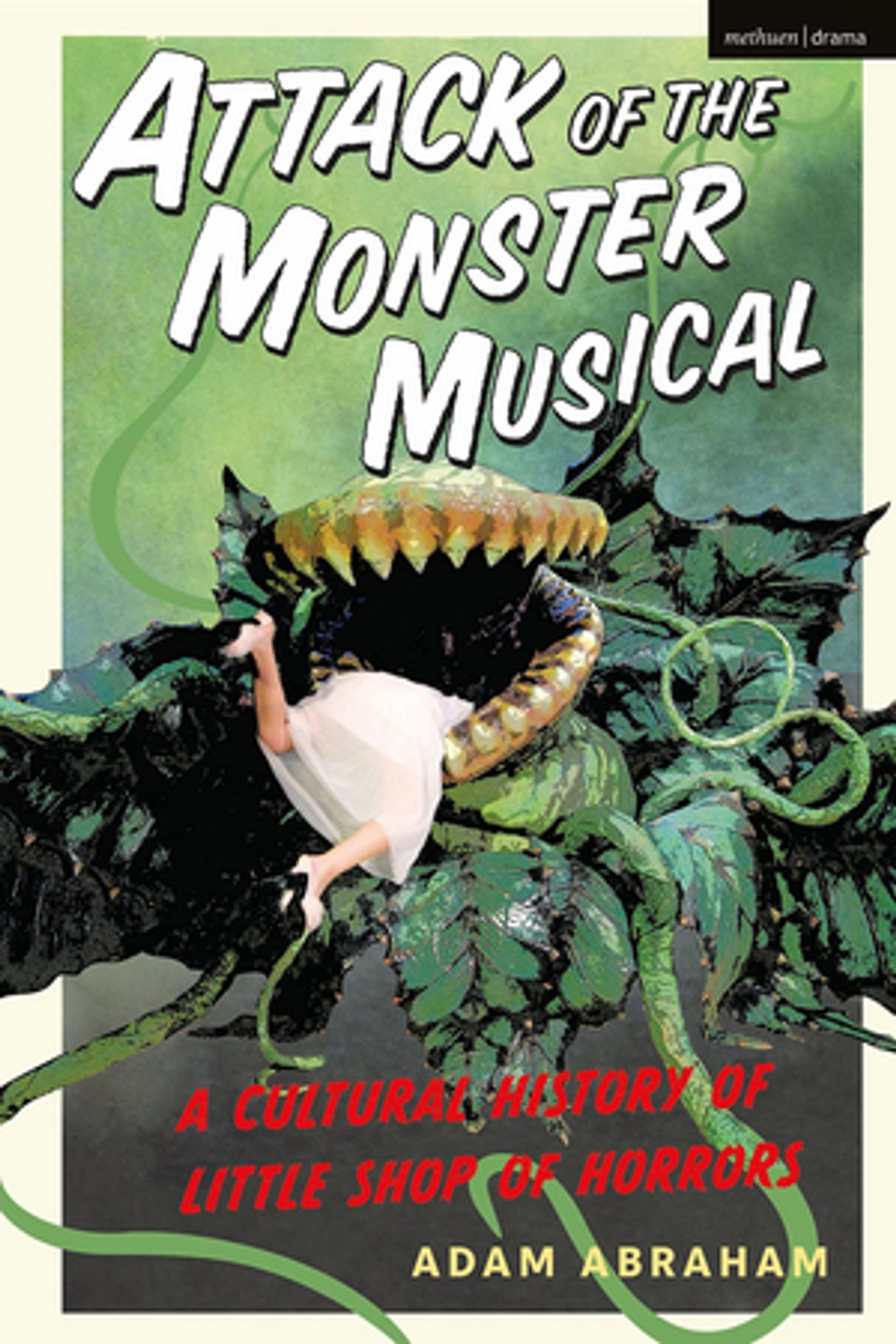ATTACK OF THE MONSTER MUSICAL: A CULTURAL HISTORY OF LITTLE SHOP OF HORRORS to be Published in September
Published on the 40th anniversary of the show, Attack of the Monster Musical is a timely and comprehensive look at the creation of Little Shop.

How does a B movie shot in two days with a budget of $30,000 spawn one of the most popular American musicals? In Attack of the Monster Musical: A Cultural History of Little Shop of Horrors (Bloomsbury / Methuen Drama, September 8, 2022, US $24.95, paperback), Adam Abraham chronicles this unlikely phenomenon: how an obscure 1960 Roger Corman film inspired the mega-hit Little Shop of Horrors, which became a global success.
Published on the 40th anniversary of the show, Attack of the Monster Musical is a timely and comprehensive look at the creation of Little Shop and its place in contemporary musical theatre. Examining the show in a broader cultural context, the book asks why this improbable combination of blood, destruction, and catchy tunes has resonated with audiences from the 1980s to today. Lyricist Howard Ashman, a fan of the Corman film in his youth, teamed with composer Alan Menken to transform a throwaway thriller into an iconic stage musical. The book recounts the crafting of characters and lyrics, the dead ends, and brilliant breakthroughs-how Ashman and Menken synthesized their source material with the DNA of classic American musicals and the doo-wop records of the early 1960s. The resulting success launched the careers of the collaborators, who went on to revive the Disney animated musical with The Little Mermaid, Beauty and the Beast, and Aladdin.
Dozens of Little Shop alumni bring to life the process of creating this musical, revealing never-before-published details. Through interviews and primary documents, the book examines the show's creative development, its fraught rehearsal process, and the triumphant opening in 1982. Readers hear from Cameron Mackintosh, producing his first New York hit; Lee Wilkof, playing Seymour and struggling in the starring role; his co-star Ellen Greene, already a diva, who often consumed all the oxygen in the room; and Martin P. Robinson, of Sesame Street, charged with building man-eating puppets on a shoestring budget.
Attack of the Monster Musical deftly explores the cultural impact of Little Shop of Horrors. In the early 1980s, Ashman and Menken recognized that nostalgia was in vogue. Baby boomers, growing older, were keen to look back (see: American Graffiti, Happy Days, Grease, The Wonder Years, and Back to the Future). In the age of Watergate and Ronald Reagan, the supposed innocence of the Eisenhower era grew more appealing. Further, Little Shop tapped into the zeitgeist of the moment with its mashup of genres: it's a romantic comedy and a monster movie and a musical. Over the next few years, Hollywood filmmakers proceeded to crossbreed genres to break down categories: Ghostbusters, Gremlins, Beetlejuice, and Who Framed Roger Rabbit. In 1986, Little Shop joined them on the big screen in a lavish Hollywood remake, starring Rick Moranis, Steve Martin, and Bill Murray. But Little Shop also anticipated the trend with its fusion of high and low, the comic and the tragic-a tuneful confection of hope and horror.
Told through archival research and eyewitness accounts, Attack of the Monster Musical will fascinate readers interested in music, the arts, and show business by offering a window into the last sixty years of popular culture, from the height of the Cold War to the rise of social media. Through the creative struggles of its authors, the triumph of opening night, and the enduring relevance of this strange little musical, the book reminds readers of the power of art to captivate audiences and articulate their dreams and nightmares.
Pre-Order the book HERE!
Adam Abraham
Adam Abraham is the author of When Magoo Flew: The Rise and Fall of Animation Studio UPA and Plagiarizing the Victorian Novel: Imitation, Parody, Aftertext. He has also written for film, television, and theatre. Now a Postdoctoral Teaching Fellow at Auburn University, he previously taught at Virginia Commonwealth University, New York University, and Oxford.
Videos

